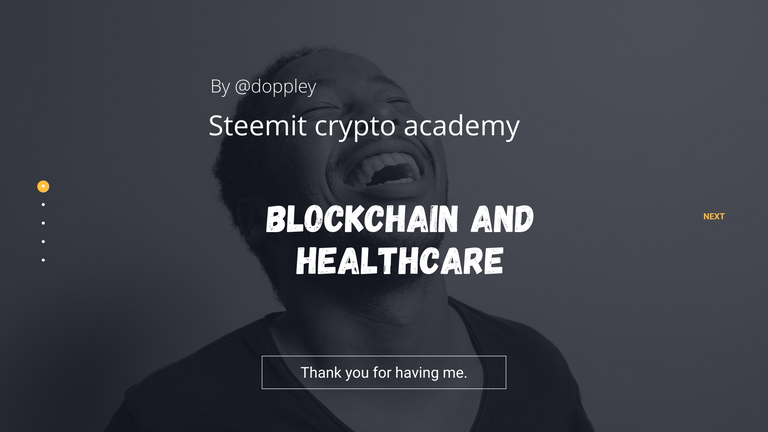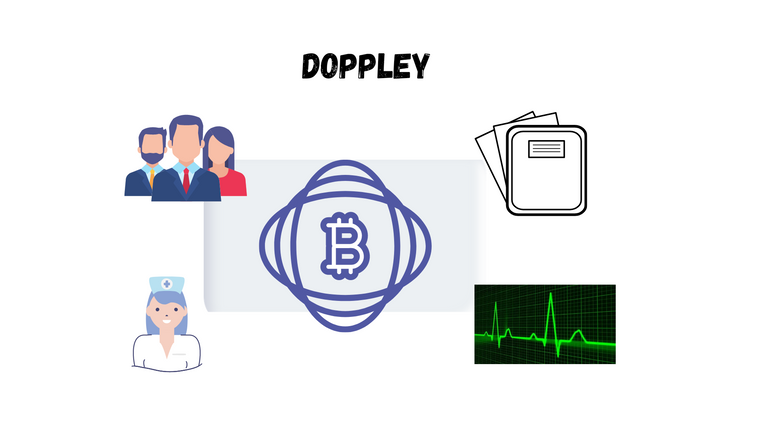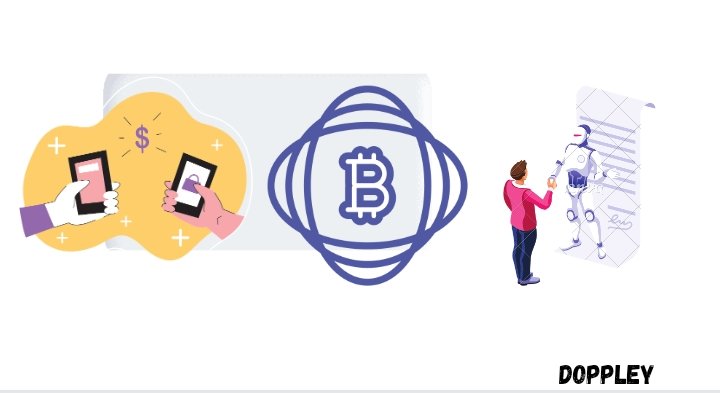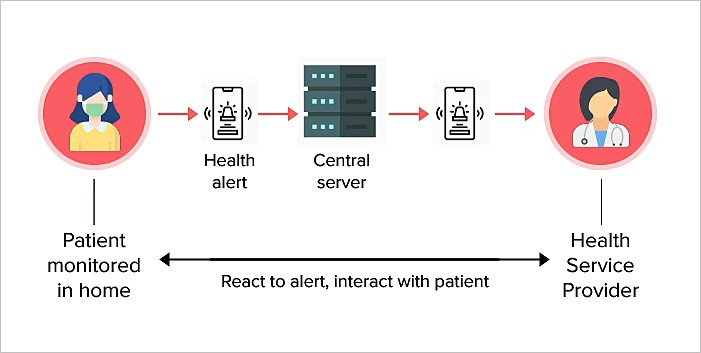Blockchain and the healthcare industry

Image created in canva
The world is constantly changing and new innovations and technology keep sprouting and one thing that remians constant is CHANGE itself, therefore as the world evolves it's only natural for a sector as vital as the healthcare industry to evolve to meet new needs and adapt to newer technology.
In discovering potential applications of blockchain in the healthcare industry, I'll emphasize on areas where the application and use-case of BLOCKCHAIN in the healthcare industry can tackle some of the biggest issues facing healthcare today
Medical Records and data management

Image created with canva
In every healthcare system, medical records and information remain a vital constituent and a lot is done to ensure such records are stored securely, but still, security remains a very important yet easily breached factor in most walks of life today and the healthcare industry is no exception. Between the years 2009 and 2017, it was reported that over 176 million patients' records were breached and exposed resulting in credit cards, health, and banking information getting stolen.
Once data is inputted into a blockchain, it becomes permanent and cannot be altered due to its distributed nature but still it remains open to anyone with a use case. This characteristic of the the blockchain, also known as immutability aligns strongly with the requirements of healthcare industries in the sense of guaranteeing the integrity and legality of patients' healthcare records and medical data
BLOCKCHAIN's ability to store an incorruptible log of transparent information about patients' data remains unrivaled. Furthermore, it's the ability to simultaneously remain visible yet private by being easily accessible and being able to preserve the sensitivity of medical data, identity, and records via complicated cryptographic algorithms.
For instance BURST.IQ a colorado based company operating in the industries of cyber security, software, and bug data helps healthcare companies improve how medical data is shared and used through a blockchain application. This technology is augmented to monitor patients' health and provide up-to-date records about healthcare activity. It's been helpful in rooting out abuse of substances such as opioids.
Interoperability in accessibility of data
Hospitals and healthcare centres around the world have varying methods of storing patient data and medical records and as the e-records of every individual patient continually expands and becomes more complex with every visit to the doctor or hospital, it becomes increasingly difficult for healthcare providers to obtain these information. With the aid of blockchain this problem can be reduced to the barest minimum or better still completely eliminated. The true value of interoperability could be unlocked by a blockchain-powered health information exchange. Blockchain-based systems have the potential to reduce or eliminate the friction and costs associated with current middlemen.
Through the storage of such records over a distributed database, patients are granted authority over their records by being able to unlock and share their Informations using a shareable private key. This will allow for seamless switching of patients between providers and also the application of blockchain would further simplify and make more efficient a one stop access between patients and physicians. This enhances interopabiity by allowing for an open source database that enables healthcare providers to access patient Information swiftly
Supply chains
By integrating blockchain technology into this area, Blockchain technology can help secure pharmaceutical supplies and track their movement in real time. It can even track the labor costs and carbon emissions associated with the production of these supplies. With the use of blockchain, one.of the main problem tackling the drug and pharmaceutical Industry "Drug Fraud" can be tackled. This is characterized by the production of replicas of genuine products usually made by putting in the wrong set of ingredients which may eventually hamper he health of unsuspecting individuals that fall prey to this scheme. According to recent research, it's been discovered that drug fraud is on the rise as a whooping estimate of 10-30% of drugs circulating the economy originate from drug fraud and this is valued in the underground economy at $200 billion annually.
Blockchain possesses the capacity to solve this problem, as blockchain makes data immutable, making changes to any dataset at any given point in time is impossible. Also, the drug manufacturing trail is monitored via the blockchain therefore chances of fraudulence or data leakages are reduced to the barest minimum.
Next generation payment models

Image created with canva
The healthcare business has long sought the development and incorporation of technological advancements and technology that could aid in the provision of a more collaborative approach and equitable technique of cost management. To achieve this model utilizing blockchain technology, smart contracts in the form of small auto-run programs might be put in place, which would automatically complete transactions when certain parameters are met. This will eliminate any transactional gaps that are commonly seen in international payment processing and will enable quick and safe payments through an encrypted framework without the need for a third party. This will lead to trustless transactions.
Remote patient monitoring via blockchain technology
With the aid of blockchain, healthcare administration will get a lot easier. A blockchain consists of various nodes and with the utilization of this technology a central node could be established to serve as a server in the healthcare industry for which all other nodes would be connected in an interconnected manner to facilitate easy connection and sharing of biomedical data. Also, through blockchain-based applications patients will be monitored in real-time at relatively cheaper costs and alerts will be passed to the central server with respective changes in the physical and mental health of individuals. This will not only provide better access to high-quality care to patients but also help in discovering illnesses at their inception.
The concept, of blockchain, remains an ever-fascinating technology and it's far from being fully utilized in sectors of the economy as we observe the inherent benefits the application and Incorporation of blockchain technology into major sectors of the economy offer.
Posted Using LeoFinance Beta

Congratulations @doppley! You have completed the following achievement on the Hive blockchain and have been rewarded with new badge(s):
Your next target is to reach 4250 upvotes.
You can view your badges on your board and compare yourself to others in the Ranking
If you no longer want to receive notifications, reply to this comment with the word
STOPSupport the HiveBuzz project. Vote for our proposal!